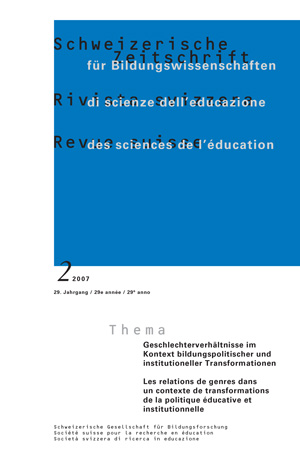Gender Perspectives as a Strategy of Modernization: Women in Educational Leadership Positions – A Trans-Atlantic Comparison
DOI:
https://doi.org/10.24452/sjer.29.2.4771Keywords:
School policy, women in school leadership positions, identity, ambi- valence, comparative education, gender mainstreamingAbstract
A new, greater focus on gender aspects of the modernization process has become de rigueur in social science research as well as in politics. A primary example is the Amsterdam Agreement of 1998 that established “Gender Mainstreaming,” and thereby equalization of the conditions for men and women in all domains, as an officially endorsed principle of European politics (Bergmann & Pimminger 2004). However, in Germany, women still remain considerably under-represented among leadership positions in all major social spheres. This is also true in regard to school leadership, arguably one of the most significant and influential realms that contributes to future social development. For this reason it makes sense paying greater attention to this “little noticed subset among those women leaders who are gladly heralded as illustrative” Kansteiner-Schänzlin (2004: 7). Therefore it is both good policy as well as of particular social significance to look at the current situation of women who aspire to positions of school leadership in light of the traditional institutional structures that have defined their vocation. Which kinds of issues and concerns arise for women who might aspire to positions of educational leadership? How do both individual as well as institutional constraints color their perceptions and aspirations? What have the experiences been of women who are successfully forging career paths as school administrators? These questions inform the following presentation in which we provide selected results from a Trans-Atlantic research partnership. This research builds on the long tradition of scholarship on “qualities of leadership” that is well-established in English-speaking countries. Therefore, by situating this discussion within the context of an international, comparative study we gain valuable insights into the ways that this discourse has been framed by cultural, linguistic, and policy factors in both the United States and Germany.
Downloads
Downloads
Published
Issue
Section
License
Copyright (c) 2007 Claudia Fahrenwald, Maureen Porter

This work is licensed under a Creative Commons Attribution 4.0 International License.



